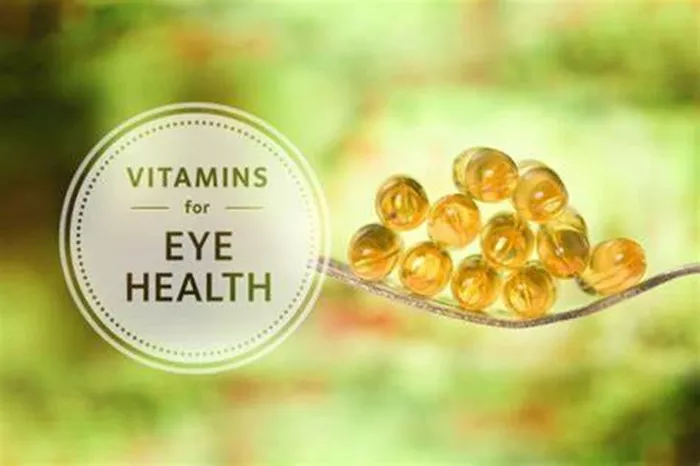Cataracts are an inevitable part of aging for many, but their onset and progression can be slowed through a well-rounded intake of essential vitamins. These nutrients play a critical role in maintaining eye health, reducing the risk of blurred or dimmed vision caused by cataracts. Read on to learn which vitamins are key for eye health and how they can be incorporated into your daily diet.
The Role of Vitamins in Cataract Prevention
Cataracts occur when proteins and fibers in the eye’s lens break down and clump together, leading to cloudiness that impairs vision. This process is primarily driven by aging, although other medical conditions can also contribute. According to eye specialists, while surgical intervention is the only definitive treatment for cataracts, regularly consuming certain vitamins may delay their formation.
“To minimize the risk as much as possible, make sure to consistently include key vitamins in your diet,” says Dr. Kruti Shah, Cataract, Cornea, and Refractive Surgeon at Dr. Agarwals Eye Hospital.
Here are five essential vitamins recommended for promoting eye health and potentially delaying cataracts:
1. Vitamin E: A Powerful Antioxidant
Vitamin E is a potent antioxidant known for its ability to protect cells from free radical damage, which contributes to cataract formation. Free radicals can harm tissues throughout the body, including the protein in your eyes, leading to cloudy areas on the lens.
Dr. Shah emphasizes the importance of Vitamin E in reducing the risk of cataracts. “Ensure a high intake of Vitamin E through your diet or supplements,” she says. Foods rich in Vitamin E include:
- Almonds
- Broccoli
- Kiwi
- Mango
- Spinach
- Tomato
2. Vitamin C: Protecting Against Oxidative Stress
Vitamin C plays a key role in defending the eye’s lens against oxidative stress, which contributes to cataracts, particularly cortical and nuclear types. Cortical cataracts form on the lens’s outer edges, while nuclear cataracts develop at the center. Vitamin C also aids in regenerating other antioxidants, further fortifying the lens against damage.
“Citrus fruits such as oranges, lemons, and amla are excellent sources of Vitamin C,” advises Dr. Shah.
3. Vitamin A: Maintaining Overall Eye Health
Vitamin A is essential for maintaining overall eye health, including preventing cataracts and supporting the function of the cornea. It also helps improve tear film quality and prevent retina degeneration. A deficiency in Vitamin A can lead to dry eyes, as insufficient moisture is produced to keep them lubricated.
Foods high in Vitamin A include:
- Green leafy vegetables
- Carrots
- Mangoes
- Lamb liver
- Bell peppers
- Pumpkins
4. Lutein and Zeaxanthin: Protecting Against Eye Problems
Lutein and zeaxanthin are carotenoids derived from plants that help prevent various eye issues, including cataracts, dry eyes, and macular degeneration. These nutrients act as natural filters for harmful blue light and oxidative stress, reducing the risk of damage to the eye’s delicate structures.
“Include foods like broccoli, egg yolk, kale, kiwi, parsley, and red peppers in your diet for a good intake of lutein and zeaxanthin,” recommends Dr. Shah.
5. Vitamin B Complex: Supporting Overall Eye Health
The Vitamin B complex, including B12, B6, and folic acid, supports overall eye health and may lower the risk of cataract formation. Research indicates that individuals, especially women, with lower blood levels of Vitamin B12 are at a higher risk of developing age-related eye conditions such as macular degeneration and cataracts.
Foods rich in Vitamin B complex include:
- Green leafy vegetables
- Nuts and seeds
- Meats
- Dairy products
- Whole grains
- Legumes
Conclusion
While cataracts may be an unavoidable part of aging, their onset can be delayed through the regular consumption of essential vitamins. Incorporating Vitamin E, Vitamin C, Vitamin A, lutein, zeaxanthin, and the B-complex vitamins into your diet may not only help delay cataract formation but also promote overall eye health. For those concerned about cataracts, a balanced diet rich in these nutrients, along with regular check-ups, can make a significant difference.
[inline_related_posts title=”You Might Be Interested In” title_align=”left” style=”list” number=”6″ align=”none” ids=”12438,12257,12220″ by=”categories” orderby=”rand” order=”DESC” hide_thumb=”no” thumb_right=”no” views=”no” date=”yes” grid_columns=”2″ post_type=”” tax=””]

































